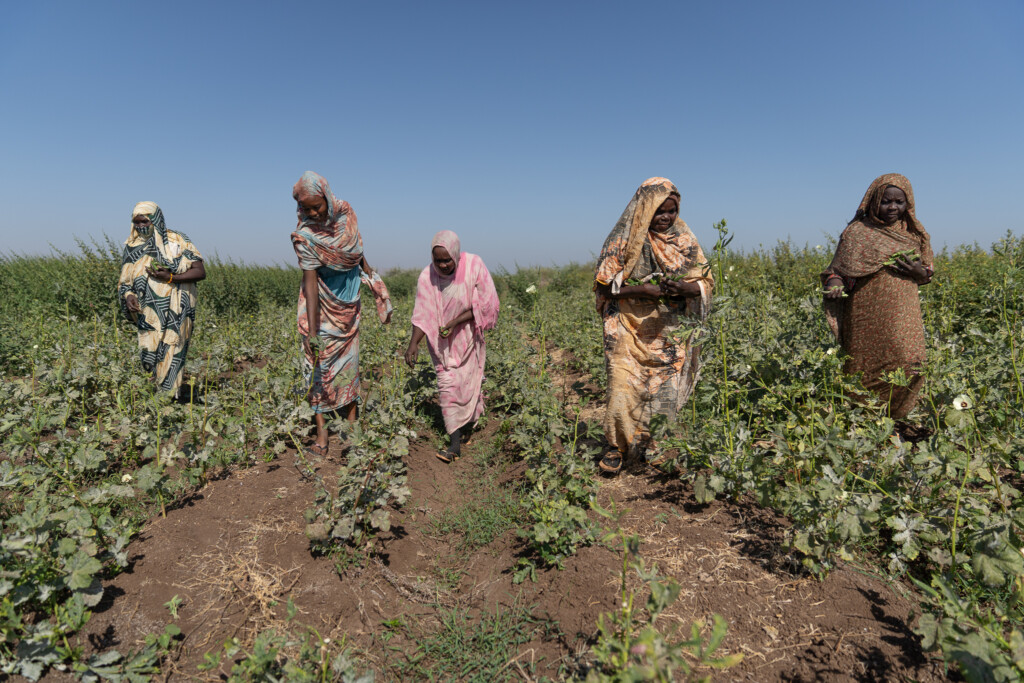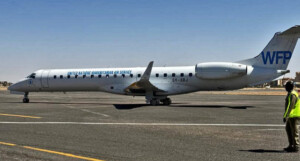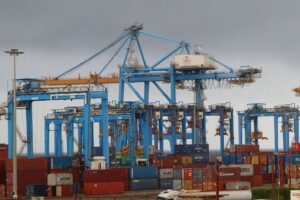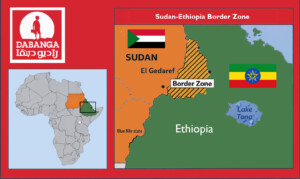Pakistan explores joint agricultural ventures with Sudan

Farmers in Gureisha in El Gedaref state harvest Okra (Photo: Giles Clarke / UNDP)
Pakistani Federal Minister for National Food Security and Research, Rana Tanveer Hussein, held a high-level bilateral meeting with Sudanese Ambassador in Pakistan, Saleh Mohamed Sadig, on Friday. The discussions focused on strengthening Pakistan-Sudan ties in agriculture, education, and investment through long-term strategic collaboration.
The Pakistani minister is reportedly interested in building international partnerships aligned with Pakistan’s goals of ensuring food security, attracting foreign investment, and advancing South-South cooperation. Rana Tanveer described these ties as a “solid foundation for stronger collaboration” in agricultural trade, technology, and education.
The minister underscored Pakistan’s technical edge in agricultural sciences, noting that its expertise in crop production, irrigation systems, and livestock health could play a transformative role in Sudan’s agricultural development. “Pakistan’s advanced research institutions and technical capabilities are ideal resources for Sudan,” he said.
The Sudanese ambassador, in turn, reaffirmed the goodwill and mutual trust shared between the two nations.
One of the key outcomes of the meeting was the minister’s positive response to a proposed trilateral partnership between Pakistan, Sudan, and Saudi Arabia. Terming it a “visionary step toward regional food security,” he said the initiative could combine Sudan’s fertile land, Pakistan’s agricultural expertise, and Gulf state investment to launch impactful joint ventures.
Pakistan is also keen to support humanitarian and development efforts in Sudan through sustainable, agriculture-driven solutions, according to the press release.
“In recent years, Gulf economies have tackled their food dependencies not just by importing foodstuffs but through land enclosures, or the purchasing of agricultural land abroad, particularly in the Middle East and North and East Africa,” wrote Middle East researcher Christian Henderson on Farm Land Grab on September 4, a few months before Sudan scrapped a port deal with the United Arab Emirates, citing Rapid Support Forces (RSF) involvement.
“The conflict tearing up Sudan is a dramatic example of how agricultural investments, often draped in the language of ‘food security’, can be part of broader power plays working against the interests and rights of local communities,” stated research and networking organisation GRAIN on March 11, in an article about land and power grabs in Sudan. “Long term, the people of Sudan deserve active support to build food sovereignty under their own command, on their own land, and without interference or unrest.”
“We cannot afford to hand [our land] over to the capitalists who are waging and profiting from this war,” said Sudanese farmer and Middle East and North Africa representative of La Via Campesina, Abdelraouf Omer, in an interview with Hope and Hammer magazine in July 2024, when asked about the impact of the war causing farmers to be displaced from their homes and incomes. “We cannot farm if it means we risk being killed, looted, and violated by the RSF. The coalition estimates that around 70 per cent of farmers have been displaced by this war, and the numbers are increasing every day.”
Resistance committees and neighbourhood councils, set up during the overthrow of the regime of Omar Al Bashir in 2019, have articulated a clear path for how to assert people’s control over their lands and food systems.
“Under the watch of these two military factions, the sell-off of Sudan’s farmland and resources continued, setting the stage for today’s brutal war between them,” stated GRAIN. “Land is and will continue to be at the centre of Sudan’s ongoing popular struggle to dismantle the military and paramilitary control over the country.”











 and then
and then